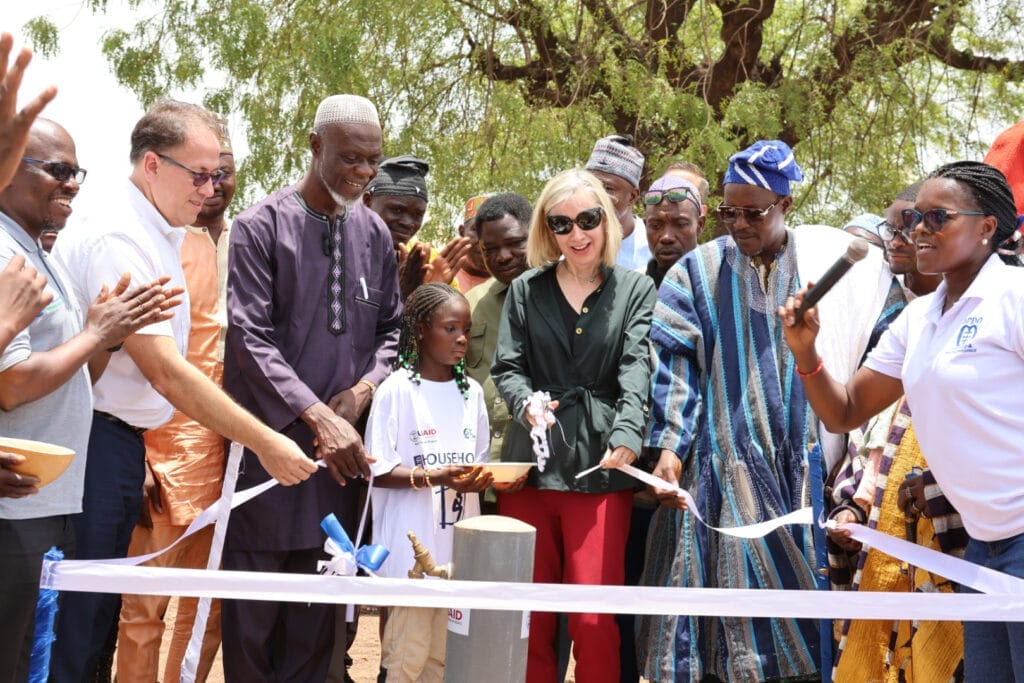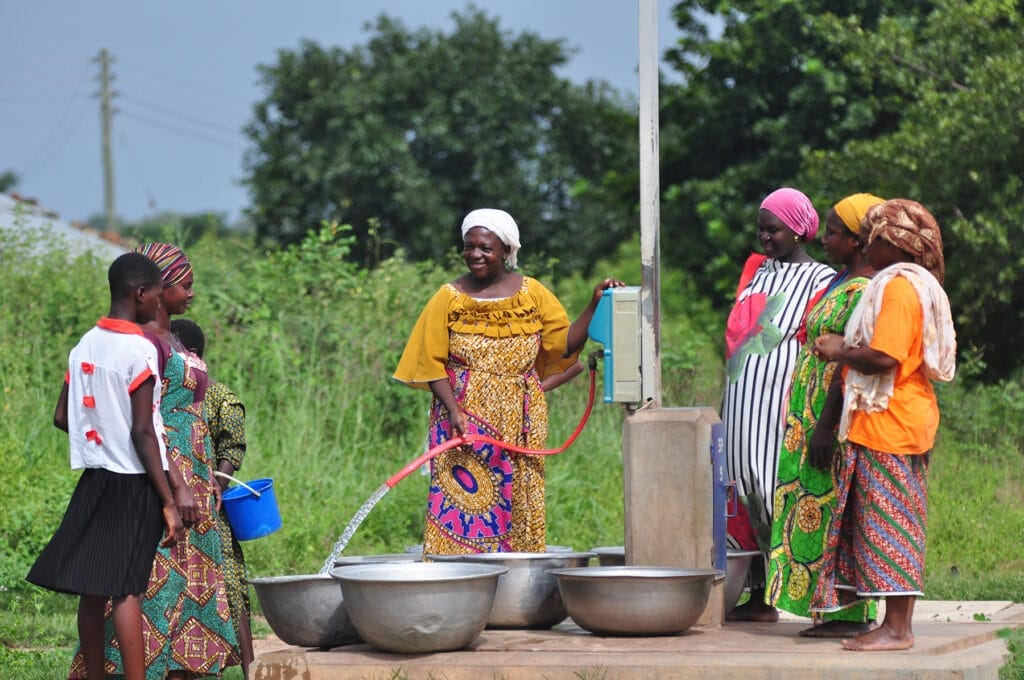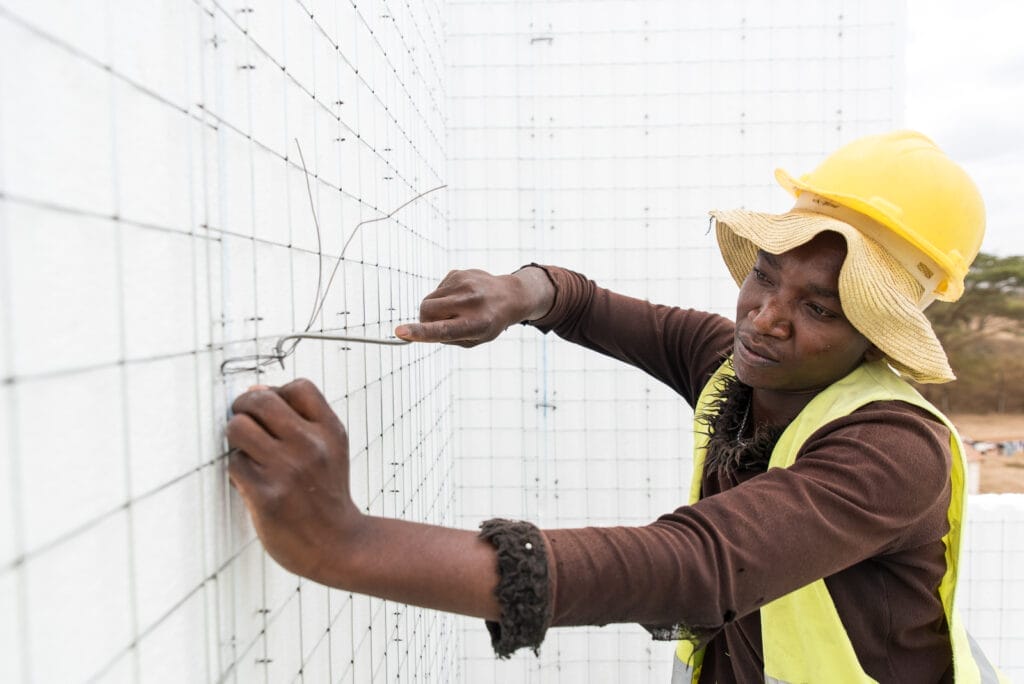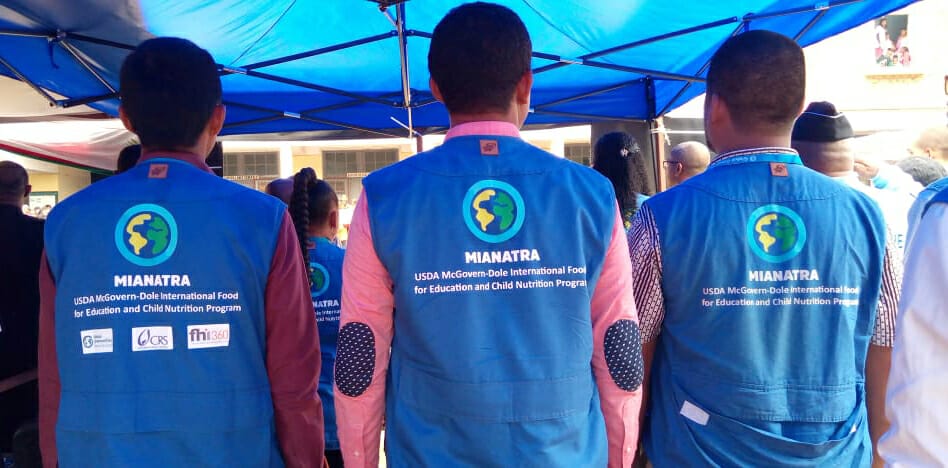Madagascar conjures images of vibrant ecosystems with plant and animal life that cannot be found in any other location across the globe. However, while rich in biodiversity, Madagascar is one of the poorest countries in the world with more than three-fourths of the population living below the poverty line.
Climate change has also heavily impacted Madagascar. Due to shifting weather patterns, the country has experienced prolonged drought for the past four years. Particularly in the southern region, food supply has diminished and plunged the country into food insecurity and devastating chronic malnutrition. In 2021, UNICEF predicted that malnutrition among children under five had quadrupled in the past year.
Global Communities is working to provide much-needed support to the hard-hit Malagasy community through its integrated school feeding approach. This multidisciplinary, student- and community-focused approach is flexible and tailored to the unique context of each school and community and improves preschool and primary school students’ learning outcomes by increasing enrollment and attendance rates, enhancing academic performance and improving their nutritional status. Global Communities is working closely with the Government of Madagascar, schools and communities to address immediate hunger through provision of daily nutritious school meals, improved health, water, sanitation and hygiene (WASH) and nutrition practices, and strengthened local capacity to take ownership of school feeding and complementary activities for sustained impact.
Improving Students’ Literacy, Health & Nutrition through School Meals
With funding from the U.S. Department of Agriculture (USDA), Global Communities is leading a consortium of partners including Catholic Relief Services (CRS), FHI360 and Malagasy Mahomby to implement the first McGovern-Dole International Food for Education and Child Nutrition (McGovern-Dole) project in Madagascar. This new five-year project, known as Mianatra (“Learn” in Malagasy), is implemented in close collaboration with the Government of Madagascar and local communities. Over the life of the project, Mianatra will provide 4,020 metric tons of U.S. donated commodities as well as funds to procure locally grown and purchased food to provide daily school meals to an estimated 64,177 preschool and primary school students in 130 schools in Southern Madagascar. Through the provision of daily, nutritious meals, Mianatra seeks to increase enrollment and attendance, particularly for girls, reduce short-term hunger and increase attentiveness.
Mianatra will improve the quality of literacy instruction by distributing school supplies and teaching materials, establishing libraries, producing books and supplementary reading materials, and training teachers, school administrators and school management committees. To improve student attendance, Mianatra will provide daily, nutritious meals and increase economic incentives for parents and families through savings and lending groups. Mianatra will also improve health, nutrition and dietary practices and will increase access to clean water and improved sanitation services through the construction of latrines, hand-washing stations and water points. Mianatra will partner with the Government of Madagascar, schools and communities to develop pathways and a model for school feeding and complementary activities and support the expansion of Madagascar’s National School Feeding program.
130
targeted schools to be reached through the life of Mianatra
64,177
students benefiting from daily school meals by the end of Mianatra
4,020
metric tons of U.S. donated commodities
Our Work in Madagascar
School Feeding
Delivering Healthy School Meals and Integrated Nutrition and Literacy Programs
Sanitation & Hygiene
Advancing the Goal of Clean Water for All
Expanding Economic Opportunity
Supporting Small and Medium-Sized Businesses and Community Savings and Lending Groups
Governance
Strengthening Civil Society, Democracy and Responsive Government
Positive Youth Development
Equipping Young People for Leadership and Success
Gender Equality & Social Inclusion
Lifting Marginalized Voices and Investing in Women as Leaders and Men as Allies
Health
Combating Disease, Improving Nutrition, and Ensuring Healthy Mothers, Children and Adolescents
Resilience
Enhancing Food Security, Sustainable Agriculture and Water Management in Climate-Affected Communities
Resources
Briefs & Case Studies
The School Garden Model
Global Communities (GC) created and is utilizing an Integrated Fleet Management System (IFMS)which optimizes fleet performance by focusing on improving users’ experience while maximizingcost- effectiveness. Empowering and equipping the Fleet Team to achieve excellence, the IFMS is acomprehensive collection of systems, tools, and procedures that guide the supervision of the fleetteam, the management of in-house…
Briefs & Case Studies
Integrated Fleet Management System
Global Communities (GC) created and is utilizing an Integrated Fleet Management System (IFMS)which optimizes fleet performance by focusing on improving users’ experience while maximizingcost- effectiveness. Empowering and equipping the Fleet Team to achieve excellence, the IFMS is acomprehensive collection of systems, tools, and procedures that guide the supervision of the fleetteam, the management of in-house…
Briefs & Case Studies
The Community-led School Feeding Model
Pamoja Tuwalishe is an innovative school meals program t h a t i s supporting 367 schoolsand communities t o operationalize the National School Feeding Guidelines (NSFG). Implementedin support of the Government of Tanzania’s priority to improve learning outcomes andchildhood nutrition, the Pamoja Tuwalishe program is funded by USDA McGovern-Dole, andis implemented Global Communities in…
Research & Publications
Adapting Health Systems to Protect Children from the Impact of Climate Change: A Series
Prepared by The Child Health Task Force, Global Communities, and UNICEF The “Re-imagining the Package of Care for Children” series, co-hosted by the Child Health Task Force, Global Communities, and UNICEF, provided a platform to foster important discussions on how to adapt health systems to protect children from the challenges posed by the climate crisis.…
Toolkits & Manuals
Cooperative Businesses: A Training Guide for Cooperatives & Developers
Kenya’s cooperative movement is flourishing, and the worker cooperative model is gaining traction as a catalyst for equitable economic development and job creation. While worker cooperatives are relatively new to Kenya, their potential impact is being recognized. The USAID Cooperative Development Program CLEAR (Cooperative Leadership, Engagement, Advocacy and Research implemented by Global Communities, is dedicated…
NEWS
Latest stories from the blog

Commissioning Ceremony Marks Milestone for Water Accessibility in Northern Ghana
On April 18, a historic event unfolded in Nawuhugu, located in the Northern Region of Ghana, as community members, local chiefs, esteemed dignitaries and stakeholders …
Read More
‘Game-Changing’ Water System Introduced in Northern Ghana
In the heart of the Bole District in Northern Ghana lies the serene and welcoming Mandari Community, a place that has seen significant transformation thanks …
Read More
Promoting Economic Advancement as a Pathway to Preventing HIV and Violence against Adolescent Girls and Young Women
By Betty Adera This month, as we observe International Women’s Day 2024, it is imperative to reflect on the multifaceted challenges that adolescent girls and …
Read More

